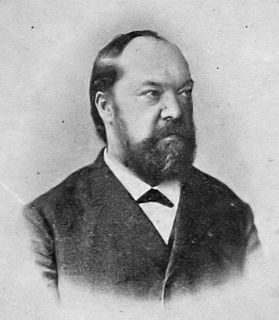A Quote by Sydney, Lady Morgan
Architecture is the printing-press of all ages, and gives a history of the state of the society in which it was erected, from the cromlech of the Druids to those toy-shops of royal bad taste
Related Quotes
It is not surprising that only one medieval state, Venice, long possessed anything clearly identifiavble as a navy in this sense. We shall see that no state in the British Isles attained attained this level of sophistication before the 16th century, and no history of the Royal Navy, in any exact sense of the words, could legitimately begin much before then. This book, which does, is not an institutional history of the Royal Navy, but a history of naval warfare as an aspect of national history. All and any methods of fighting at sea, or using the sea for warlike purposes, are its concern.
What is the use of freedom of the press if the government is in possession of all the printing presses, what does freedom of assembly avail if all the meeting places belong to the government? In a society in which there is no more personal and economic freedom, even the freest form of the state cannot make political independence possible.
In one sense, the Internet is like the discovery of the printing press, only it's very different. The printing press gave us access to recorded knowledge. The Internet gives us access, not just to knowledge, but to the intelligence contained in people's crania, access to the intelligence of people on a global basis.
I find it hard to understand why those who demand Unitary Education by the State do not also demand a Unitary Press by the State... Either the State is infallible, in which case we could not do better than to submit to it the entire domain of intelligent thought, or it is not, in which case it is no more rational to hand over education to it than the press.
The great intellectual tradition that comes down to us from the past was never interrupted or lost through such trifles as the sack of Rome, the triumph of Attila, or all the barbarian invasions of the Dark Ages. It was lost after the introduction of printing, the discovery of America, the founding of the Royal Society, and all the enlightenment of the Renaissance and the modern world. It was there, if anywhere, that there was lost or impatiently snapped the long thin delicate thread that had descended from distant antiquity; the thread of that unusual human hobby: the habit of thinking.
The word Gothic, in the sense in which it is generally employed, is wholly unsuitable, but wholly consecrated. Hence we accept it and we adopt it, like all the rest of the world, to characterize the architecture of the second half of the Middle Ages, where the ogive is the principle which succeeds the architecture of the first period, of which the semi-circle is the father.
Judges of elegance and taste consider themselves as benefactors to the human race, whilst they are really only the interrupters of their pleasure ... There is no taste which deserves the epithet good, unless it be the taste for such employments which, to the pleasure actually produced by them, conjoin some contingent or future utility: there is no taste which deserves to be characterized as bad, unless it be a taste for some occupation which has mischievous tendency.
The coming of the printing press must have seemed as if it would turn the world upside down in the way it spread and, above all, democratized knowledge. Provide you could pay and read, what was on the shelves in the new bookshops was yours for the taking. The speed with which printing presses and their operators fanned out across Europe is extraordinary. From the single Mainz press of 1457, it took only twenty-three years to establish presses in 110 towns: 50 in Italy, 30 in Germany, 9 in France, 8 in Spain, 8 in Holland, 4 in England, and so on.
It is unfortunately none too well understood that, just as the State has no money of its own, so it has no power of its own. All the power it has is what society gives it, plus what it confiscates from time to time on one pretext or another, there is no other source from which State power can be drawn. Therefore every assumption of State power, whether by gift or seizure leaves society with so much less power; there is never, nor can be, any strengthening of State power without a corresponding and roughly equivalent depletion of social power.






































